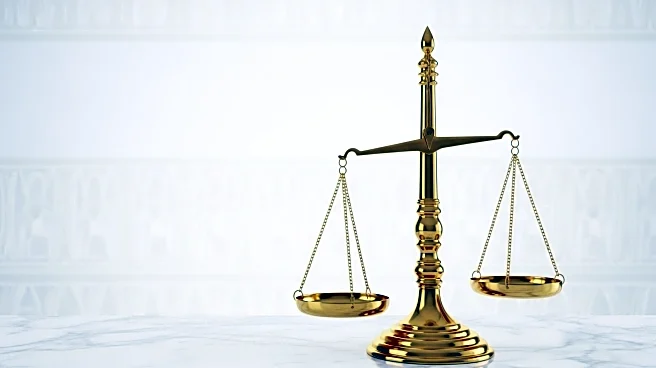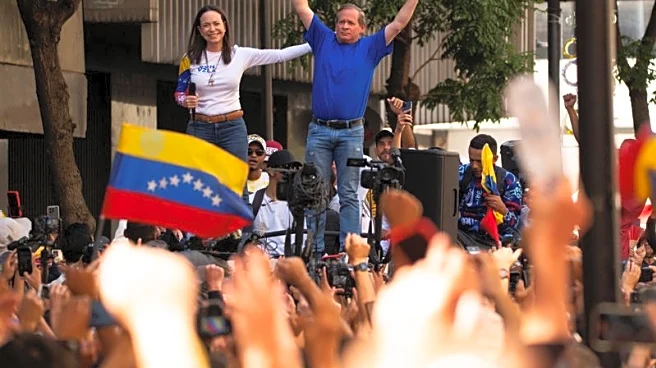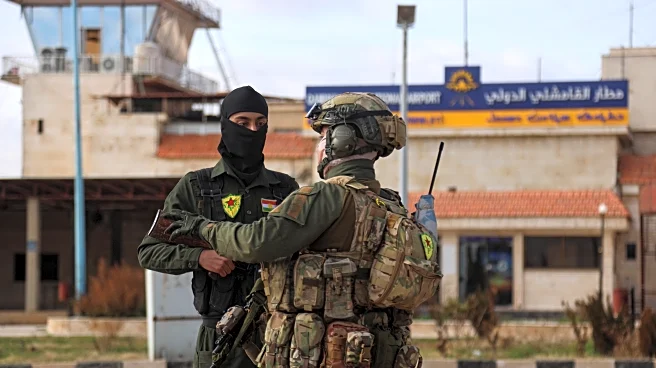What's Happening?
Egyptian President Abdel Fatah El-Sisi has pardoned Alaa Abdel Fattah, a prominent political prisoner and Arab Spring activist. Abdel Fattah, a British Egyptian computer programmer, was a symbol of the 2011 uprising against Egypt's authoritarian regime. His imprisonment has been a point of contention between Egypt and the UK, with diplomatic efforts focused on securing his release. The pardon, announced on state media, follows President Sisi's recent directive to explore the possibility of releasing Abdel Fattah. His family, informed through media reports, is awaiting his release from a prison north of Cairo. Abdel Fattah's case has been emblematic of Egypt's strict authoritarian policies under Sisi, with international calls for his freedom intensifying over the years.
Why It's Important?
The pardon of Alaa Abdel Fattah is significant as it may ease diplomatic tensions between Egypt and the UK, which have been strained due to his prolonged imprisonment. Abdel Fattah's release could signal a shift in Egypt's approach to human rights, potentially improving its international relations, especially with Western countries. The move might also reflect Egypt's response to international pressure, including from the Biden administration, which has previously withheld military aid over human rights concerns. For human rights activists, this development is a rare victory, highlighting the impact of sustained advocacy and international diplomacy in challenging authoritarian practices.
What's Next?
Following Abdel Fattah's pardon, his release from prison is anticipated in the coming days. The decision may prompt further discussions on human rights in Egypt, potentially leading to more pardons for political prisoners. The UK government, having prioritized Abdel Fattah's case, may continue to engage with Egypt on broader human rights issues. Additionally, Egypt's human rights strategy, launched in 2021, could see renewed focus and implementation, influenced by international expectations and domestic advocacy.
Beyond the Headlines
The pardon of Alaa Abdel Fattah may have deeper implications for Egypt's political landscape. It could encourage other activists and political prisoners to seek similar outcomes, potentially leading to increased activism and advocacy within the country. The decision also highlights the role of international diplomacy in influencing domestic policies, suggesting that sustained pressure from foreign governments can lead to tangible changes in authoritarian regimes.











